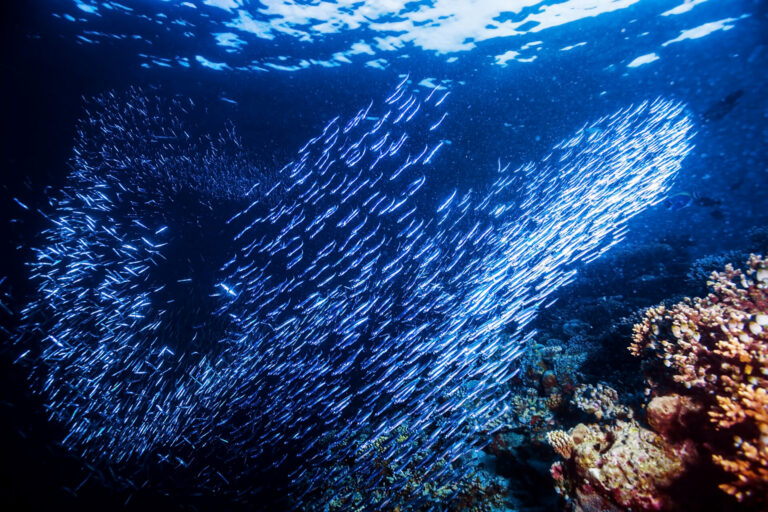
Marine Science
Potential gains from replenishing reef fish stocks revealed
Ensuring sustainable management of coral reef fisheries could provide food security and public health benefits for generations to come.
Page 1 of 2

Marine Science
Ensuring sustainable management of coral reef fisheries could provide food security and public health benefits for generations to come.
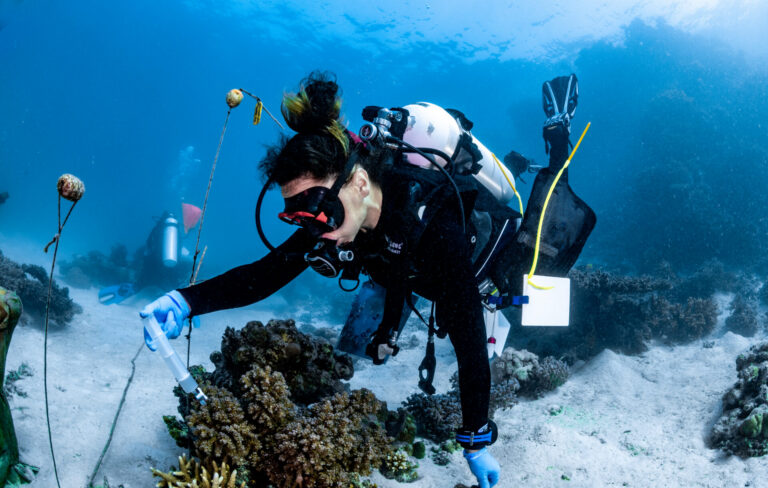
Marine Science
Field trial results from an underwater research laboratory located off the Red Sea coast show promise for microbial-based coral reef restoration.
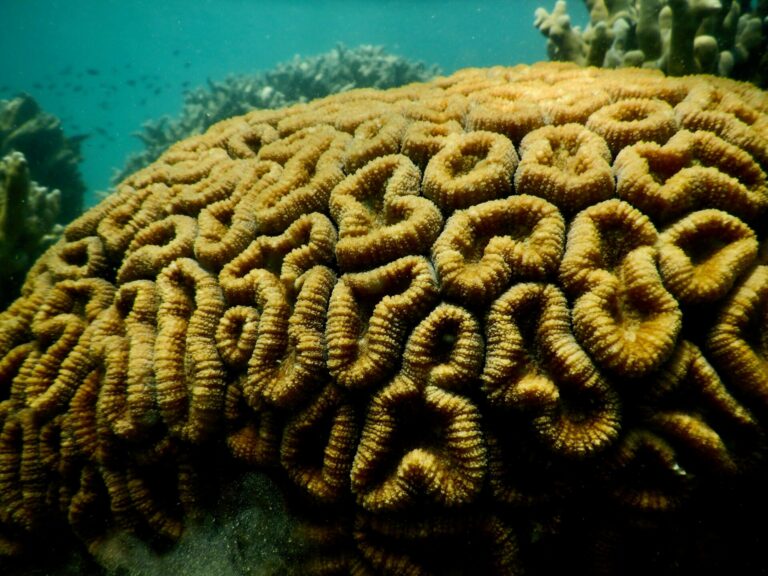
Marine Science
Heat tolerance is being conferred naturally down the generations of a common reef-building coral in response to recent marine heatwaves.
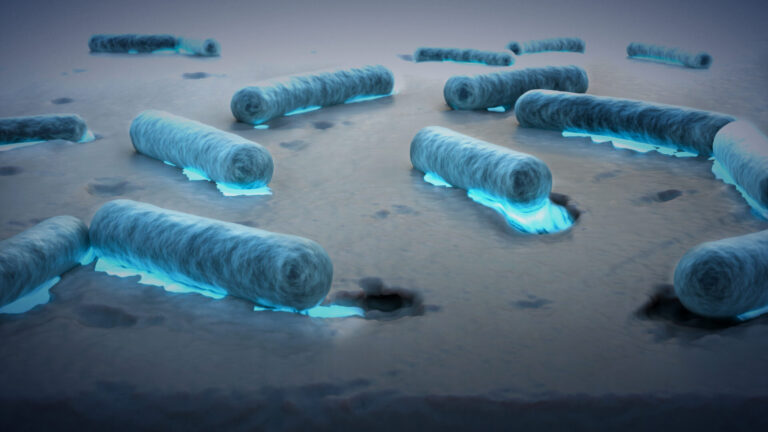
Marine Science
New enzyme motif shows how ocean microbes are evolving to digest plastic — and could help future cleanup efforts.
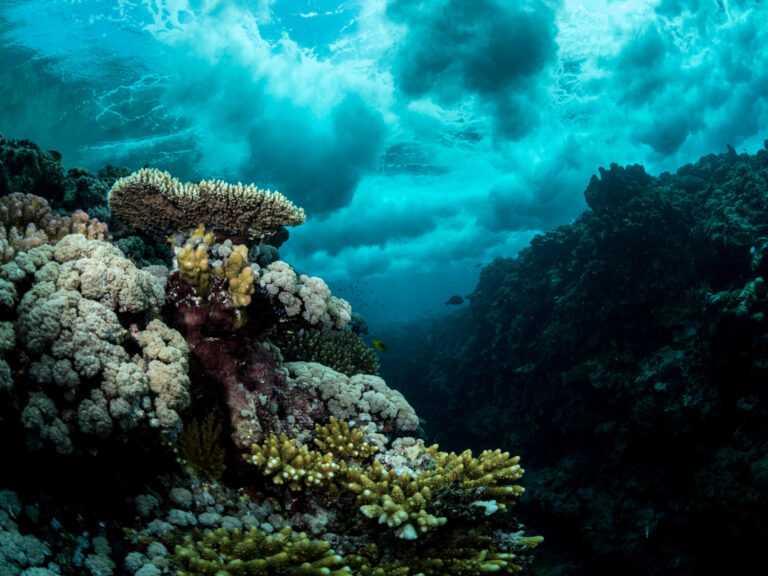
Marine Science
A study of global coral reef distributions reveals that reefs exhibit universal spatial properties conforming to mathematical power laws.
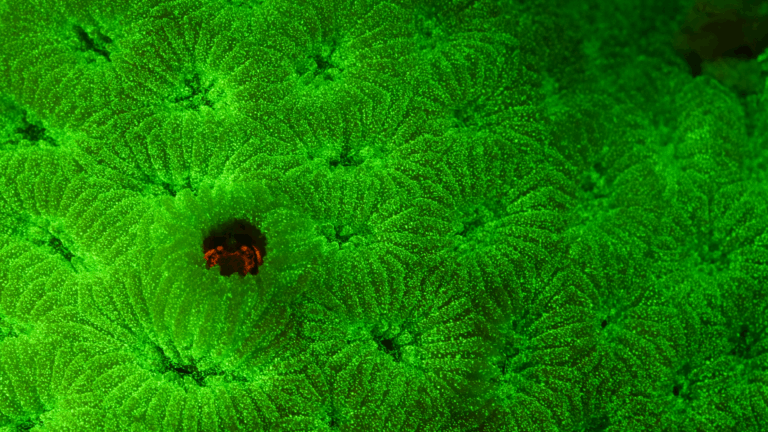
Marine Science
Symbiotic crabs use fluorescence to camouflage themselves in coral reefs.
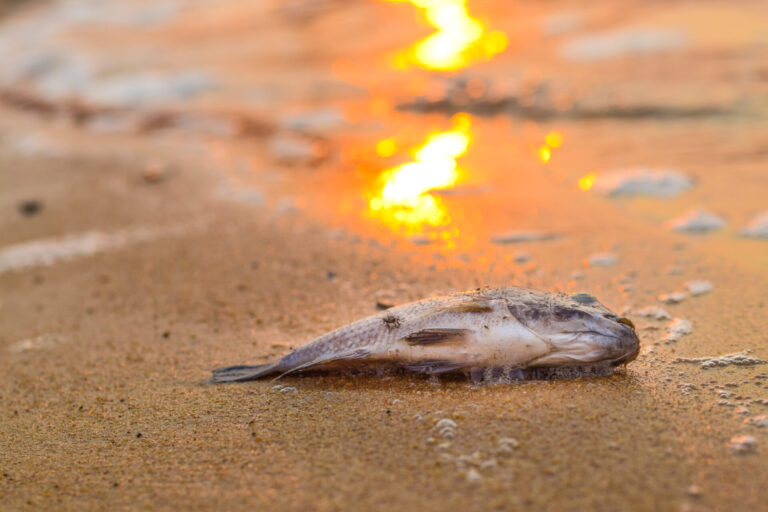
Marine Science
A severe marine heatwave in the Red Sea likely caused a mass fish mortality event and highlights increasing vulnerability of marine ecosystems.
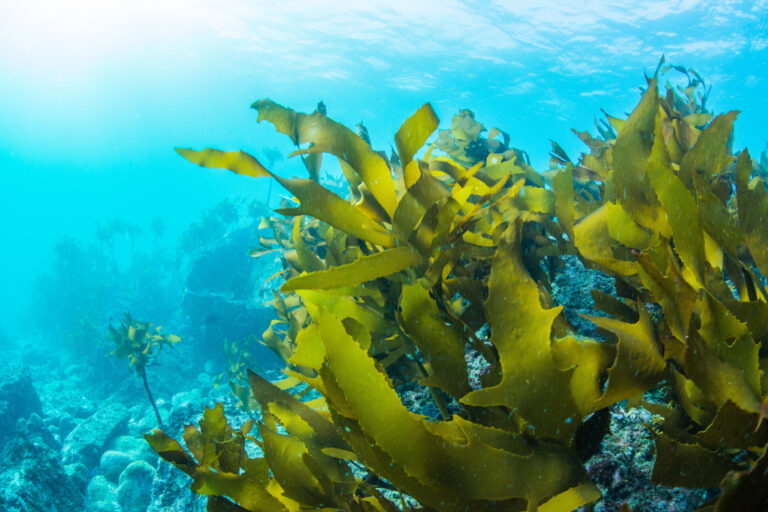
Marine Science
An analysis of chemical elements found in macroalgae from the Red Sea provides insights into regional blue carbon stores and worrying pollution trends.
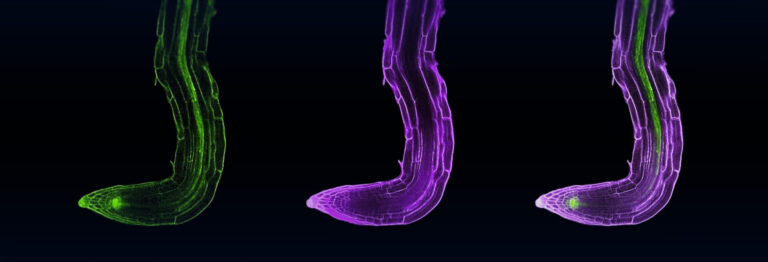
Bioscience
Uncovering the mechanism of how soil bacteria improve plant resilience to drought and salinity could be important for mitigating effects of climate change on crop production.
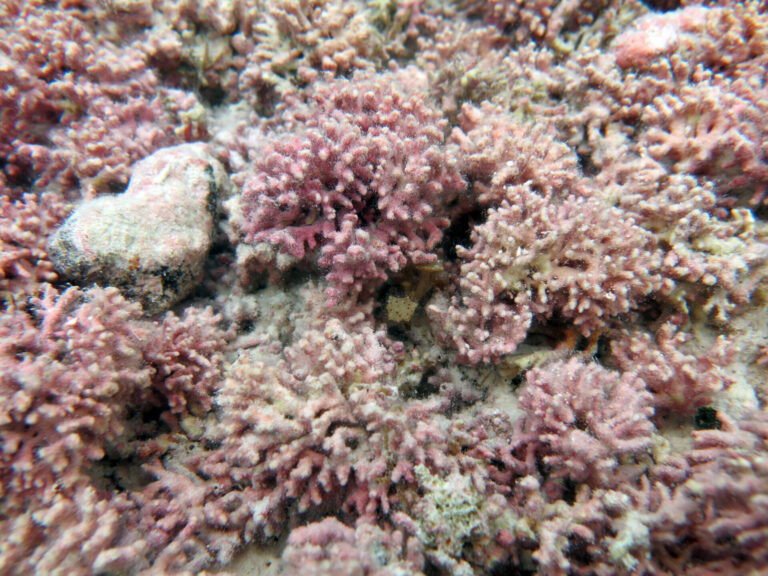
Marine Science
A chance discovery on the Palmyra Atoll in the tropical central Pacific enables researchers to take a close look at coralline algae ecosystems.
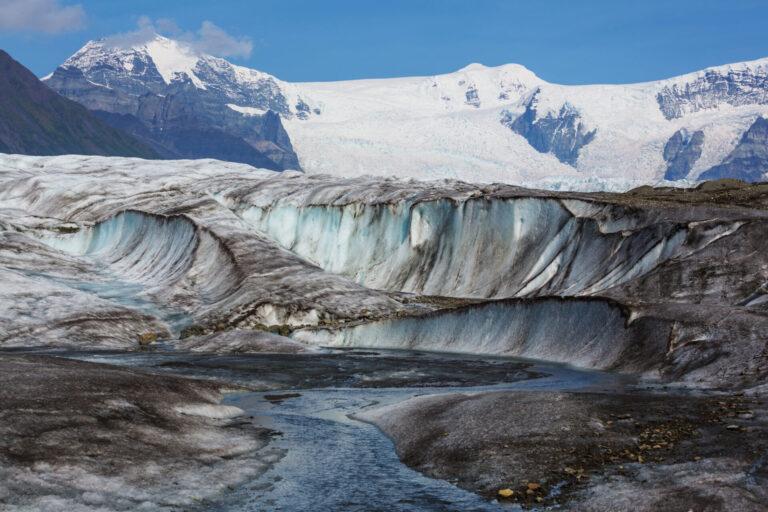
Bioscience
As glaciers shrink, a major study reveals remarkable biodiversity across the world’s glacier-fed streams, providing a global reference for future climate-change microbiology studies on this vanishing ecosystem.
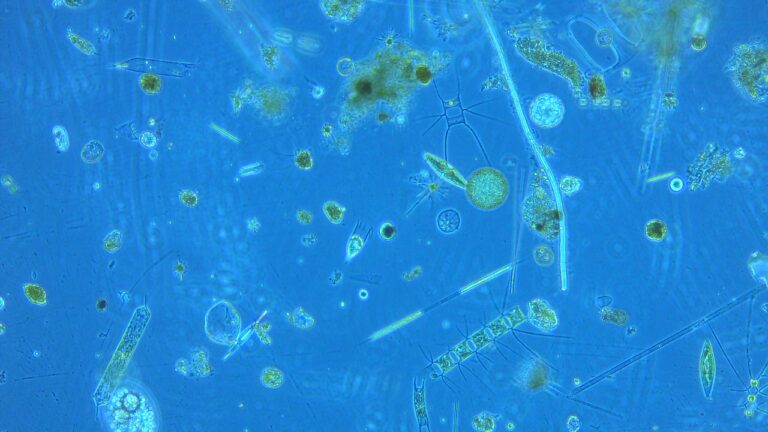
Marine Science
Sediment-core analysis highlights clear shifts in regional phytoplankton community trends following urbanization and industrialization on the coast of the Arabian Gulf.
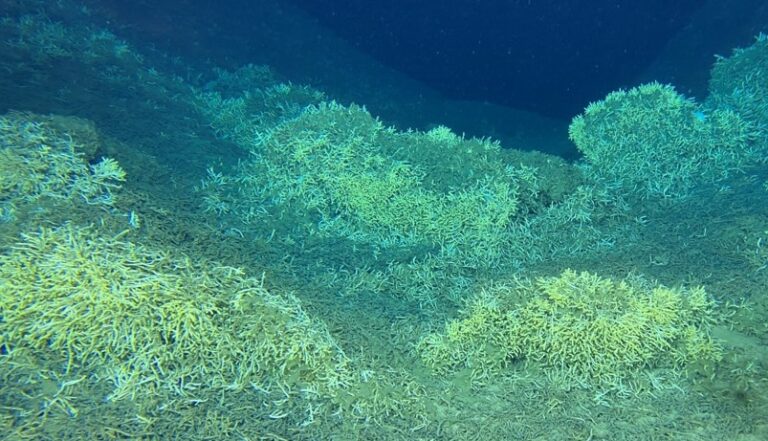
Marine Science
A habitat suitability study suggests that two stony coral species may form significant deep-sea frameworks across the northern Red Sea and Gulf of Aqaba.
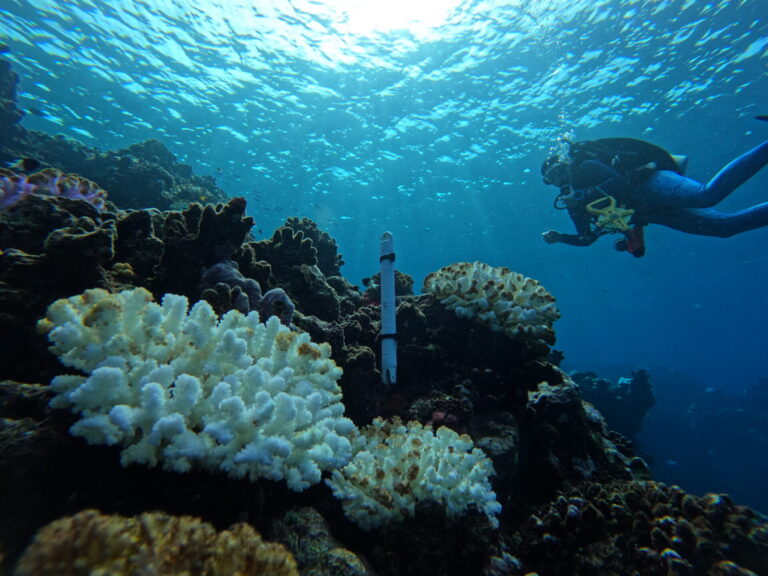
Marine Science
Reliable and standardized ocean temperature monitoring is crucial for advancing our understanding of coral survival and guiding restoration efforts.

Marine Science
Coral reef restoration is a vital tool for protecting these vital ecosystems.
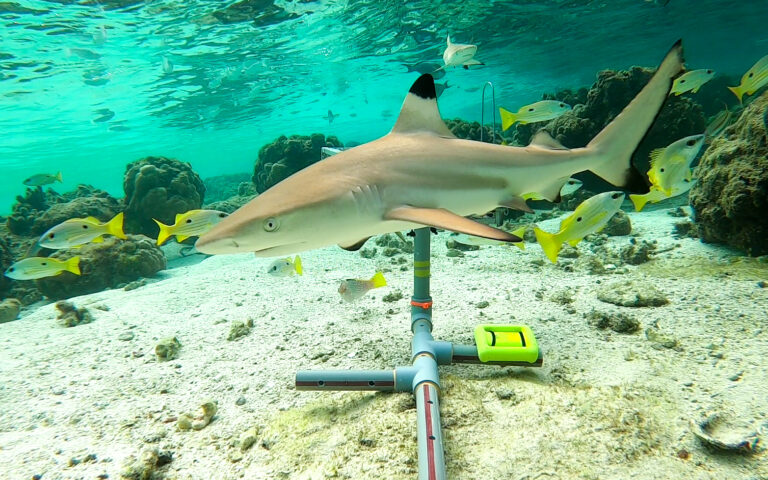
Marine Science
Finding a balance between the needs of shark fishers and the risk of unsustainable fishing is critical to the future management of small-scale shark fisheries.
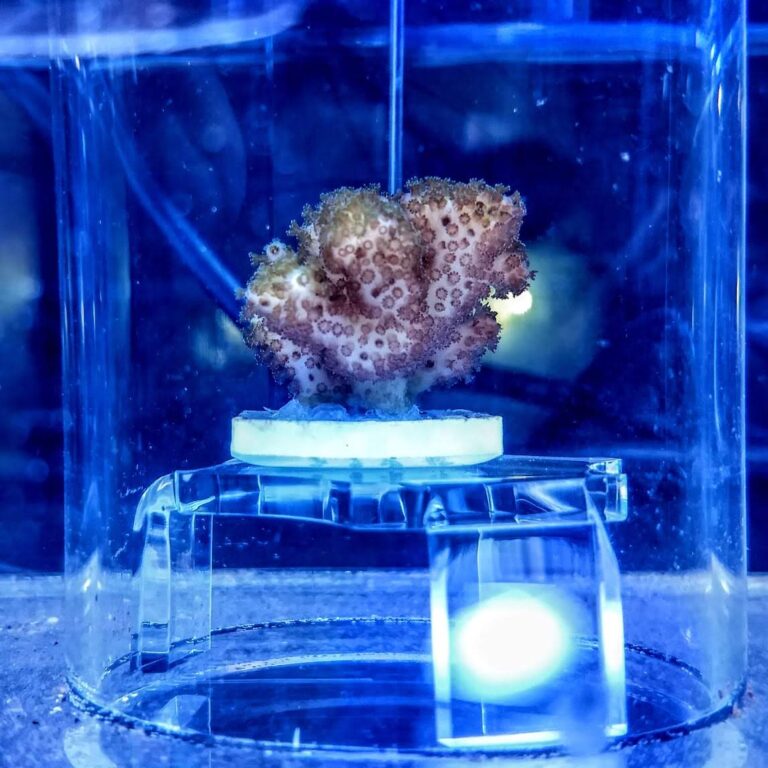
Bioscience
Beneficial bacteria localize and flourish within coral tissues, boosting resilience to heat and other stressors.
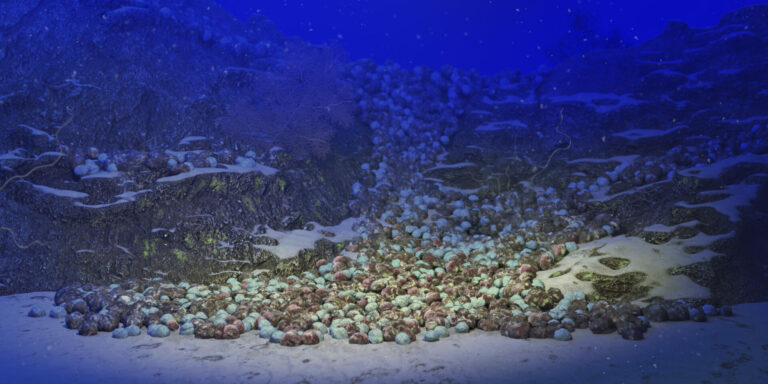
Marine Science
A detailed oceanographic survey reveals spherical nodule structures supporting life on the floor of the Red Sea.
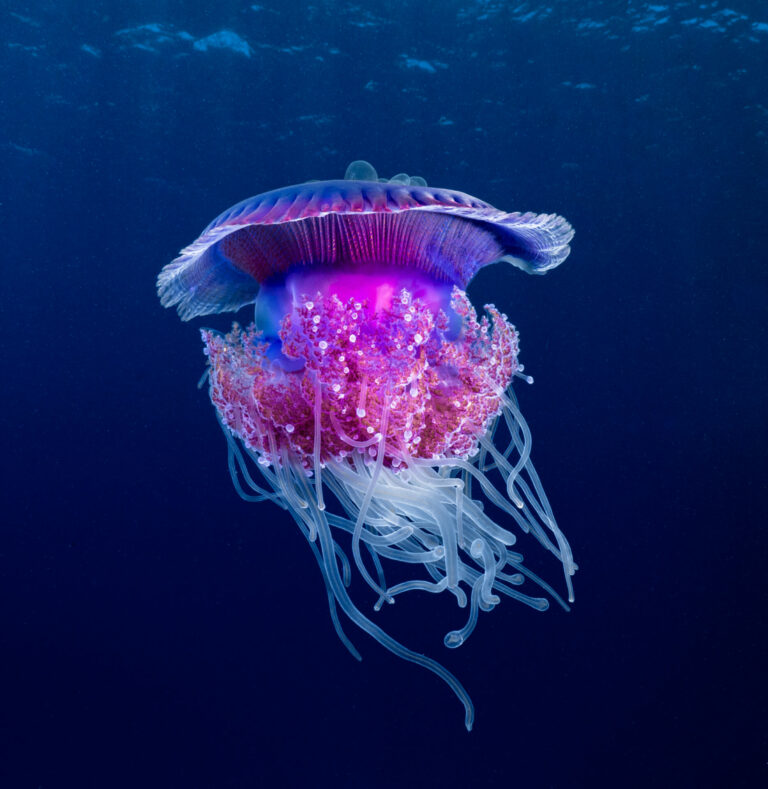
Bioscience
An open-access catalog of the global ocean genome offers novel taxonomical and functional insights and unlocks the potential of blue biotechnology

Bioscience
Analyses of sediment cores highlight declining nutrient availability and increased trace metal pollution in the Red Sea.
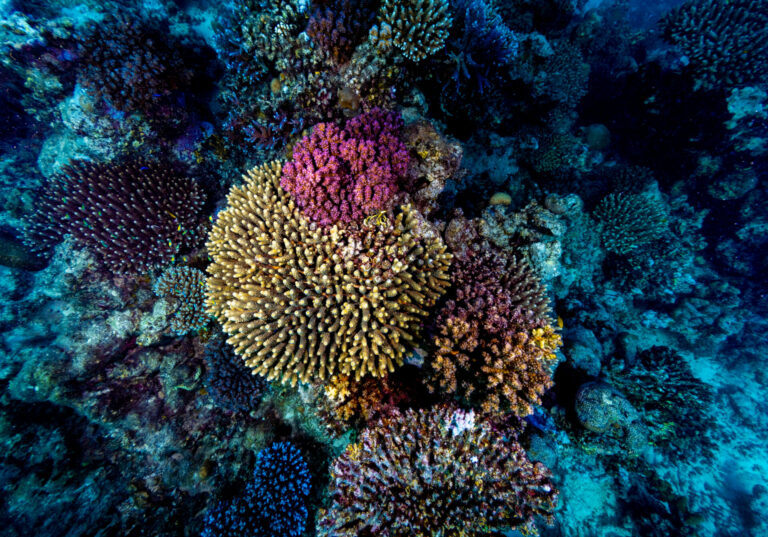
Bioscience
An emerging conservation strategy could help wildlife to become more resilient against a range of environmental threats.

Applied Mathematics and Computational Sciences
Long-term satellite data shows a significant cooling effect of vegetation on land surface temperature.
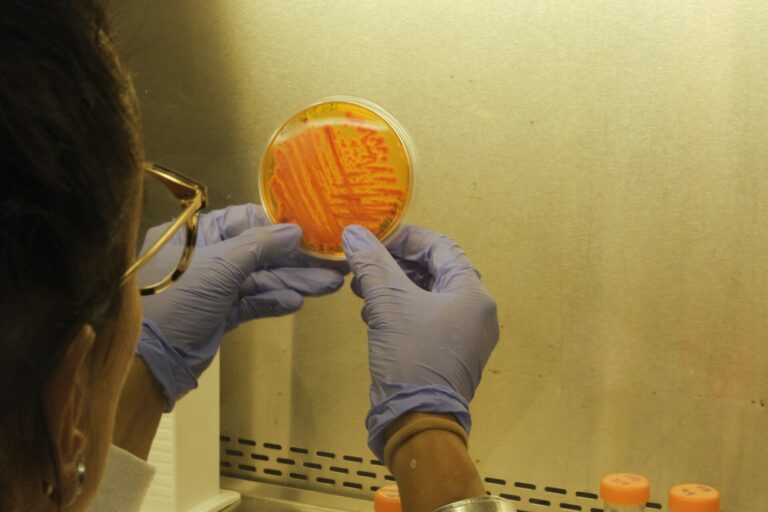
Marine Science
The ability of marine microbiomes to respond to thermal variations in their habitats is controlled by enzyme adaptation.

Applied Mathematics and Computational Sciences
A data-driven modeling system that reconstructs oceanic circulation of the Red Sea highlights the importance of developing region-specific historical datasets.
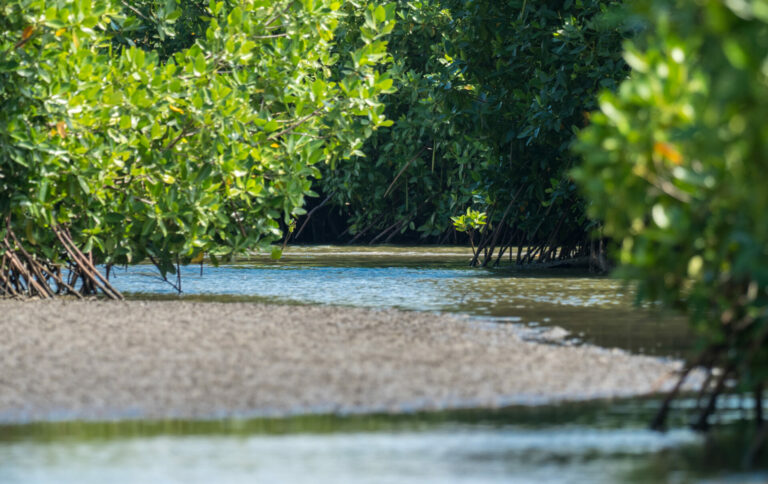
Bioscience
Marine ecosystem models should account for vast fluctuation in dissolved oxygen.
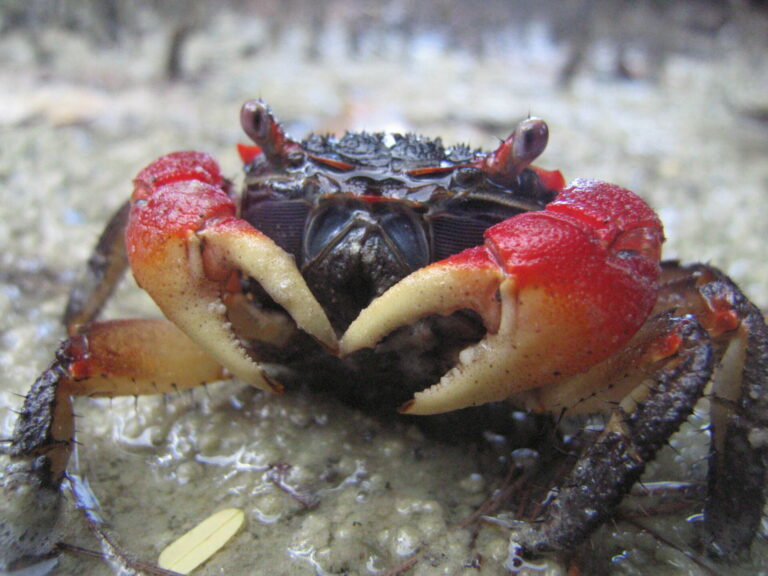
Marine Science
The role that seabed species and plants play in mixing sediments in mangroves could help to support responses to ecosystem stress and to aid regeneration.
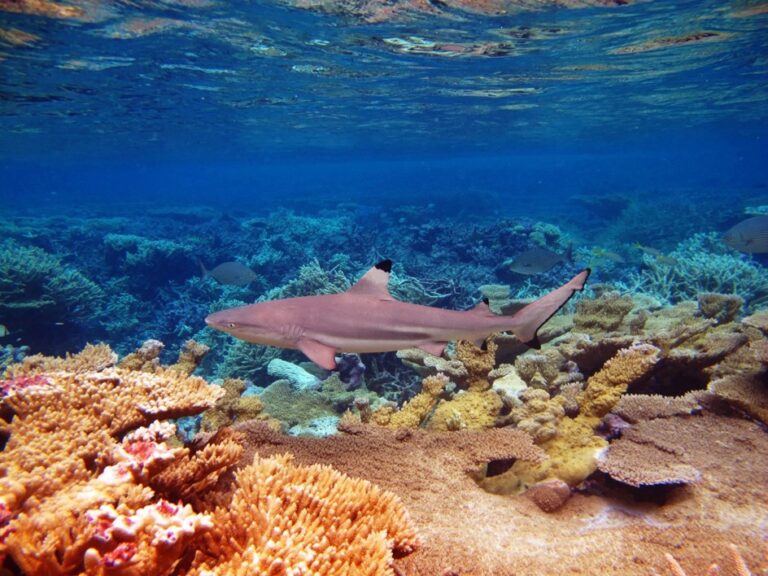
Marine Science
Surprising changes to a Pacific Ocean current during one of the strongest recorded El Niños saved a remote island’s coral reefs while others were devastated by mass bleaching.
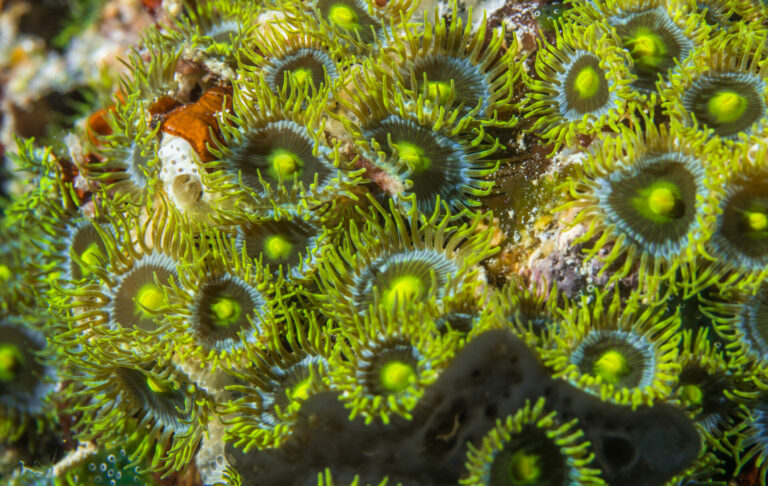
Marine Science
How a sea anemone uses its algal symbionts to assimilate nitrogen in nutrient-poor waters.
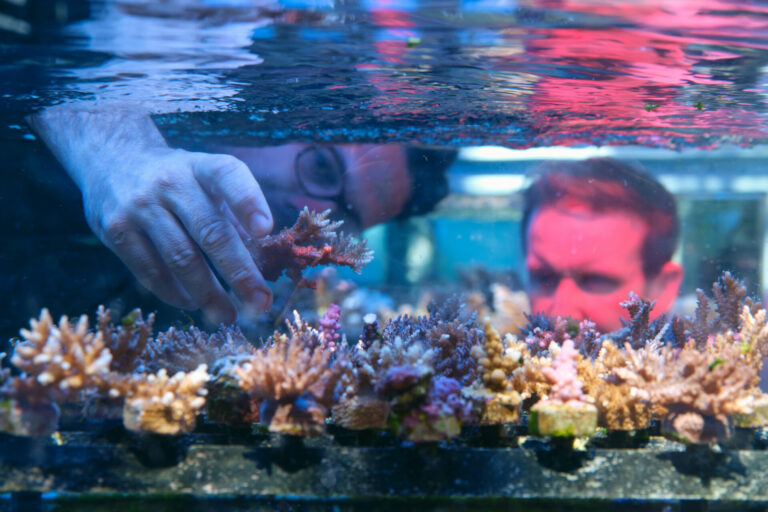
Marine Science
Minimalist art has inspired a set of tools to maximize coral restoration.
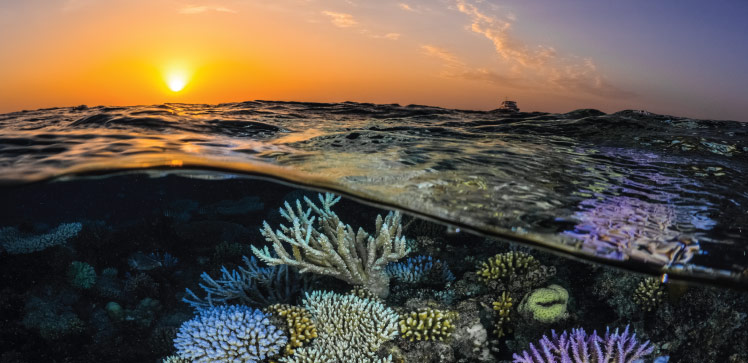
Marine Science
While corals die out worldwide, resistant reefs in the northern Red Sea could endure a dire global warming scenario.

Marine Science
Laboratory parameters maintained at physiologically relevant levels allow for more robust experiments with human cells.
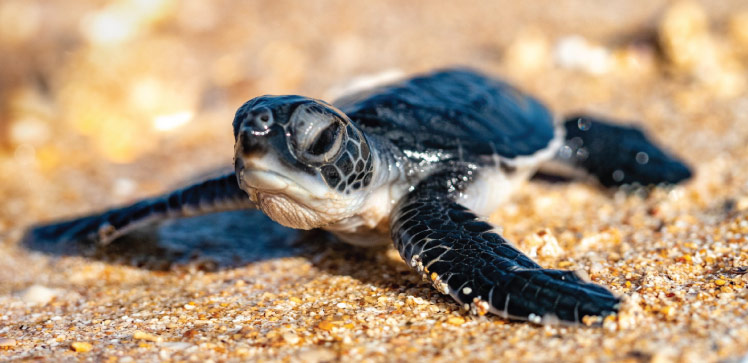
Marine Science
Sea turtles nesting along Saudi Arabia’s Red Sea coastline highlight the need for emerging megacities to protect marine habitats.
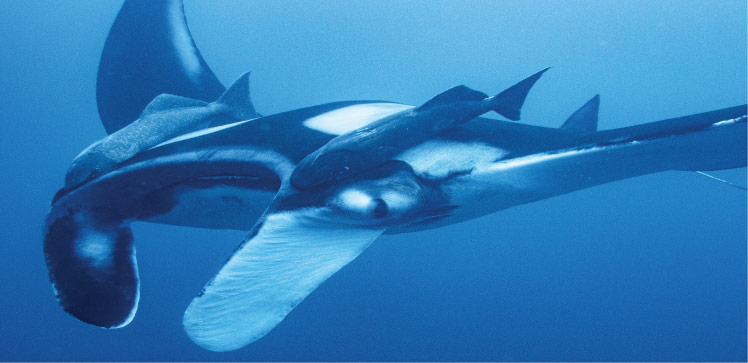
Marine Science
A citizen science project uncovers new details about the lives of oceanic manta rays in the Red Sea, including a possible nursery site.
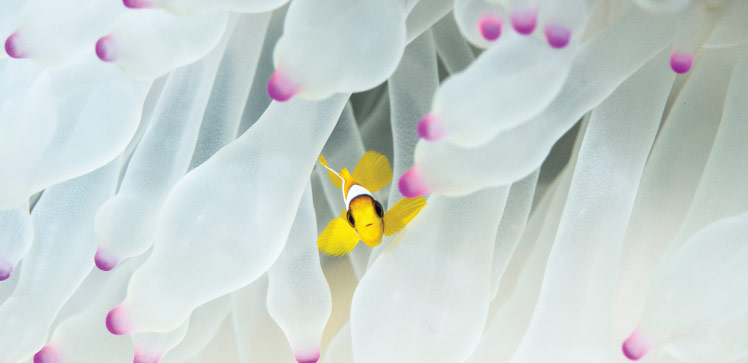
Marine Science
Time is running out, say researchers who are proposing a framework to guide the safe use of microbes to restore global biodiversity loss.
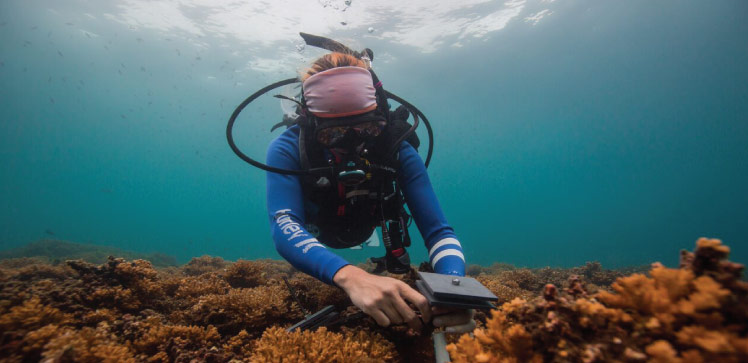
Marine Science
A standardized method for monitoring the condition of coral reefs could strengthen global efforts to manage vulnerable marine habitats.
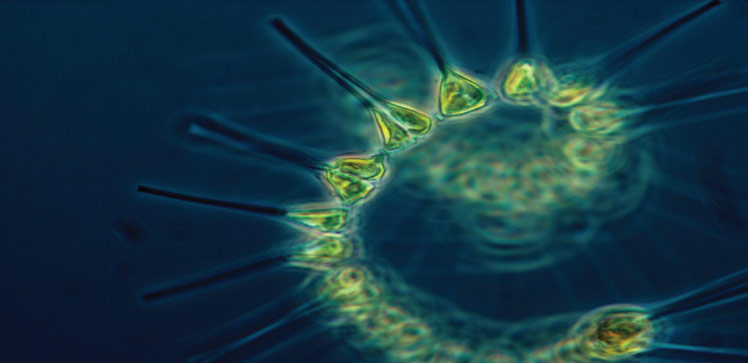
Marine Science
Satellite data analysis lays a foundation for future studies on the impact of climate change on the Red Sea ecosystem.
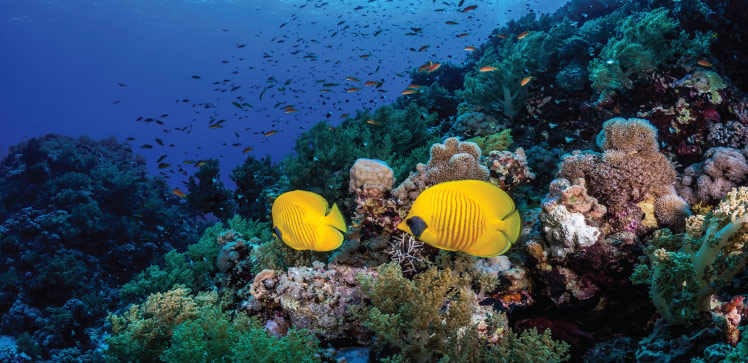
Marine Science
Restoration processes to increase the resilience of corals are needed to counter environmental pressures from climate change.
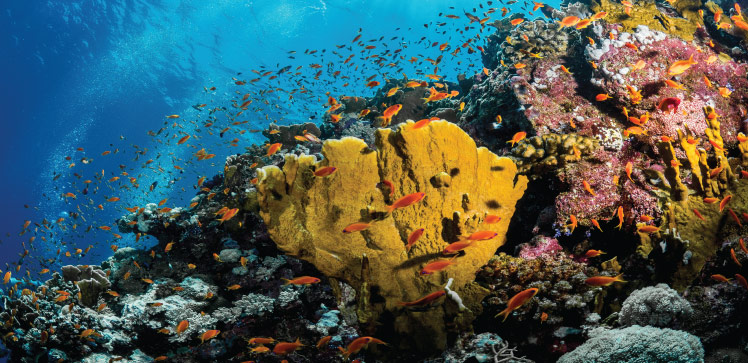
Marine Science
Corals face a grim future over the coming decades and researchers urge faster efforts to reduce global emissions and to enhance coral reef resilience.
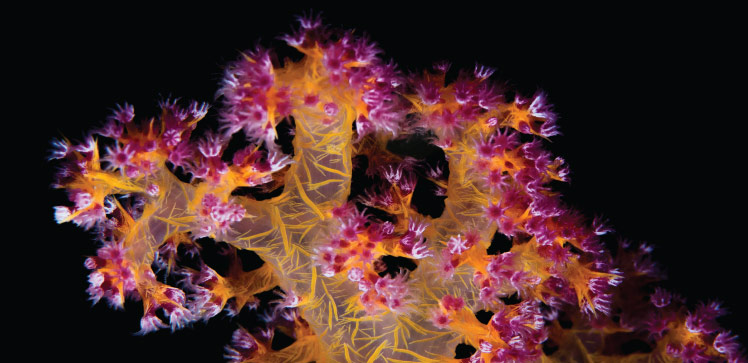
Marine Science
Probiotic treatment prevents the death of corals from heatwaves.
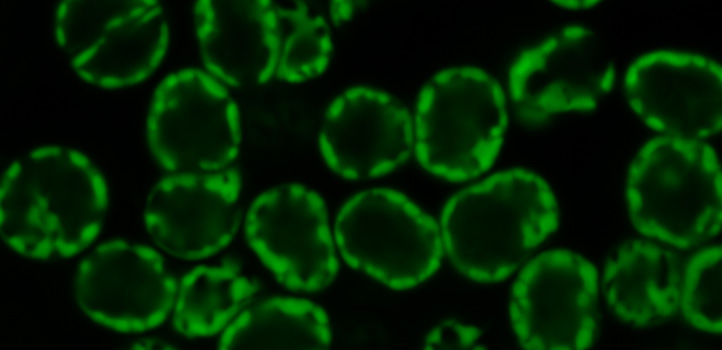
Marine Science
The weird and wonderful genome of dinoflagellates looks nothing like other eukaryotic genomes.
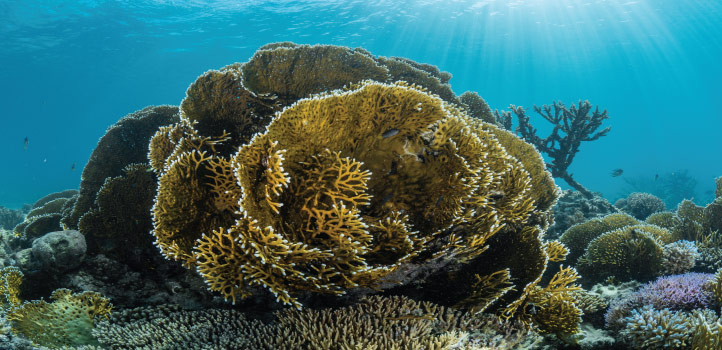
Marine Science
Coral ancestors had the genetic toolkit to make skeletal structures and only took simple evolutionary steps to begin building reefs.
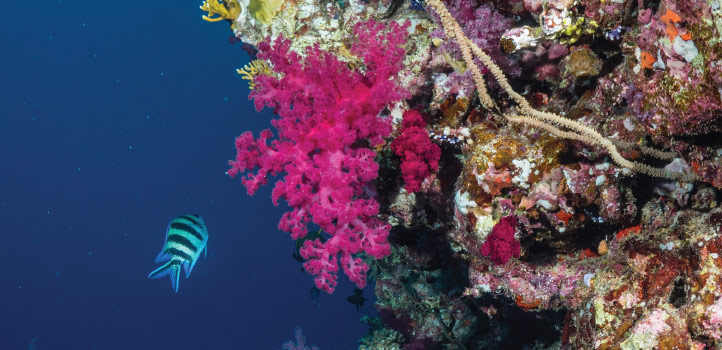
Marine Science
Heat stress disrupts the physiological processes of corals prior to clear signs of bleaching, with implications for adaptation strategies for coral reefs in a warming climate.

Marine Science
National lockdowns have provided a unique opportunity to assess the effects of human activity on wildlife, which could translate into new attitudes and better policies.
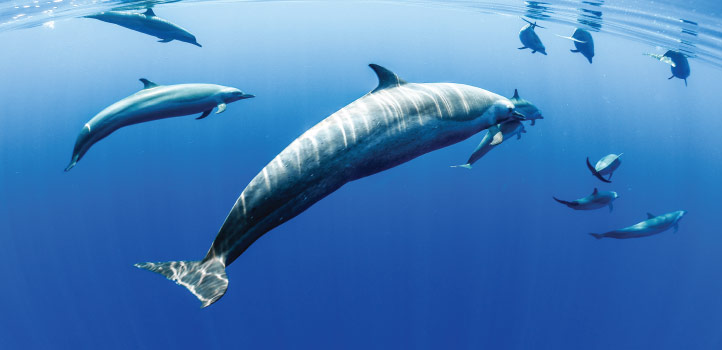
Marine Science
For the sake of marine life, international collaboration is required to reduce undersea sounds.
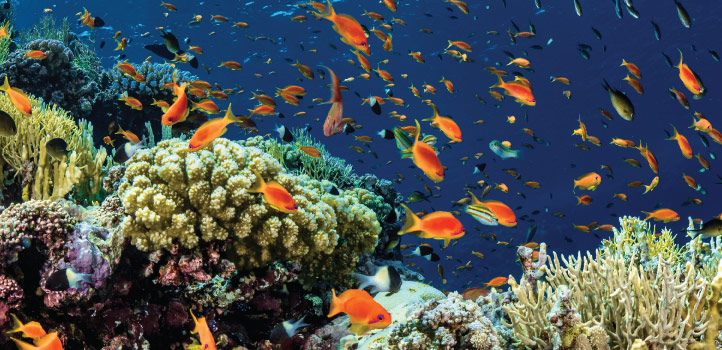
Marine Science
Providing corals with cocktails of natural probiotics could enhance their tolerance to stress and reduce mortality in coral bleaching events.
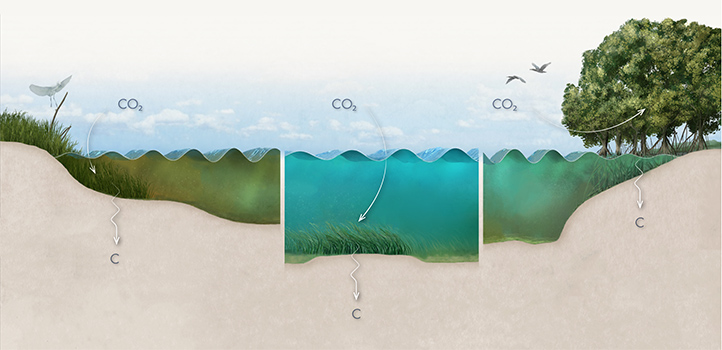
Marine Science
Tackling climate change in marine ecosystems requires diverse strategies, from protecting coasts to farming kelp and restoring whale populations.
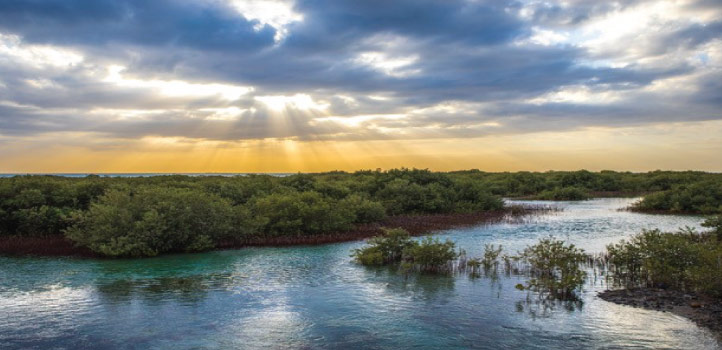
Marine Science
Researchers uncover an overlooked process enhancing the carbon-removal potential of mangroves.
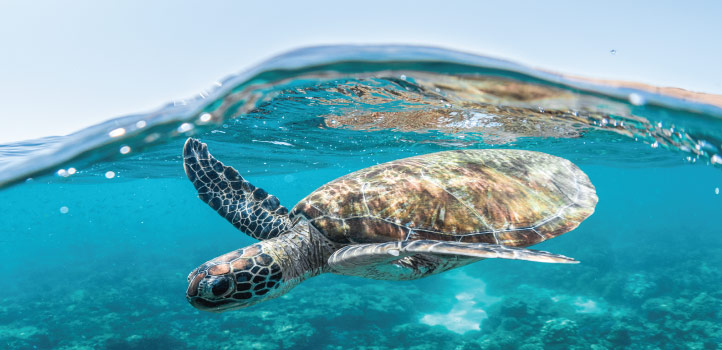
Marine Science
The balance of the sexes in marine turtle hatchlings may be disrupted by high sand temperatures at nesting sites around the Red Sea.
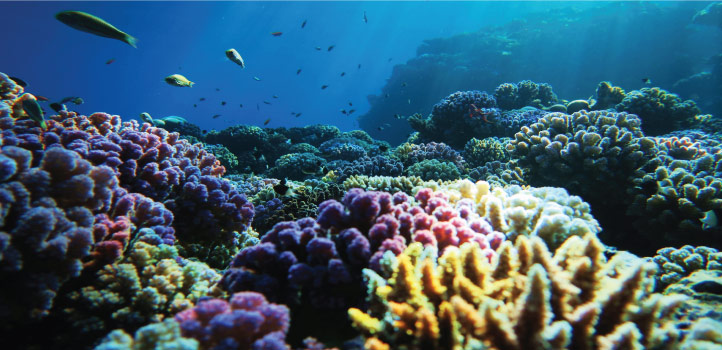
Marine Science
Little of the organic carbon in the Red Sea could be reaching the depths necessary for long-term storage.
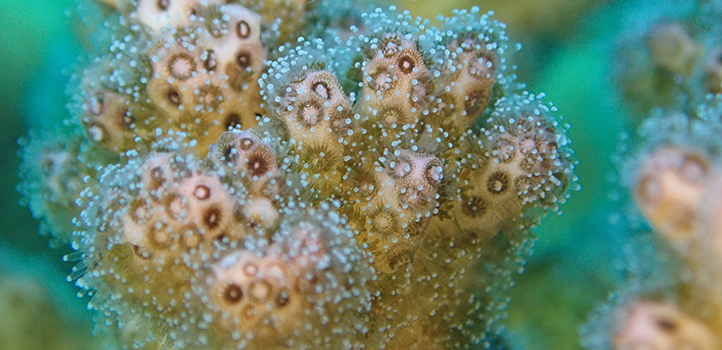
Marine Science
A newly sequenced coral genome offers tools to understand environmental adaptation.
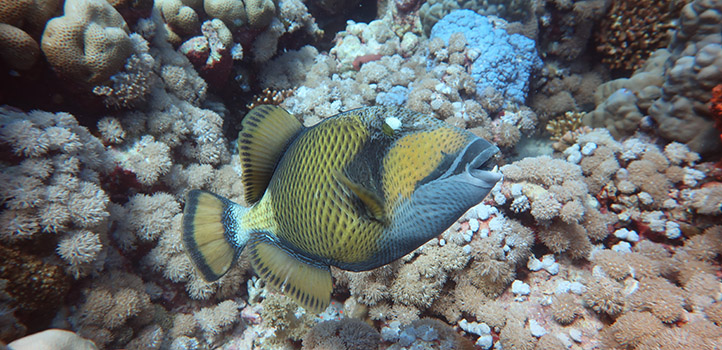
Marine Science
In probably the first observation of its kind, a tricky triggerfish is seen beaching itself before attacking a crab walking along the shoreline.

Marine Science
Multistakeholder collaboration is key for the adoption of molecular approaches that can facilitate accurate, cheaper and faster monitoring of marine ecosystems.
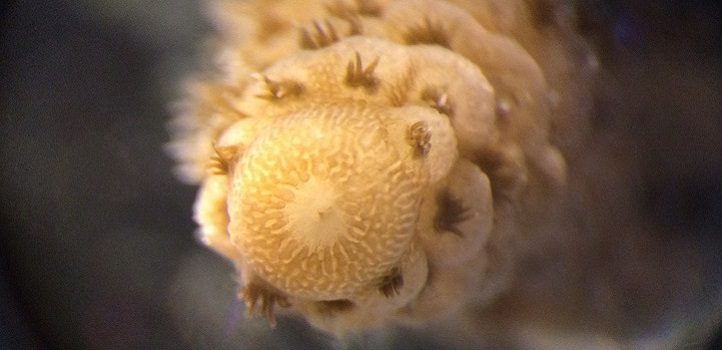
Marine Science
A safer technique reveals that corals take up seawater pollutants both directly and indirectly.
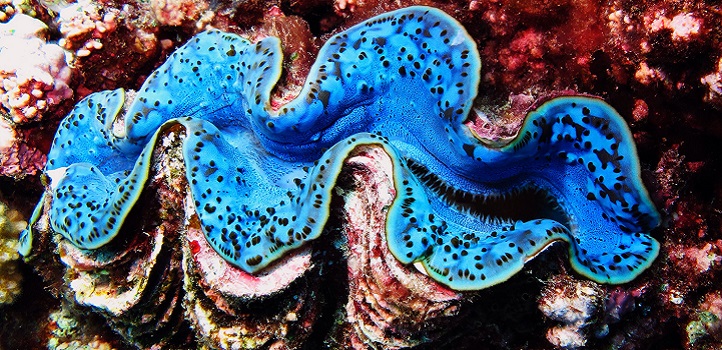
Marine Science
Giant clams manipulate light to assist their symbiotic partner.
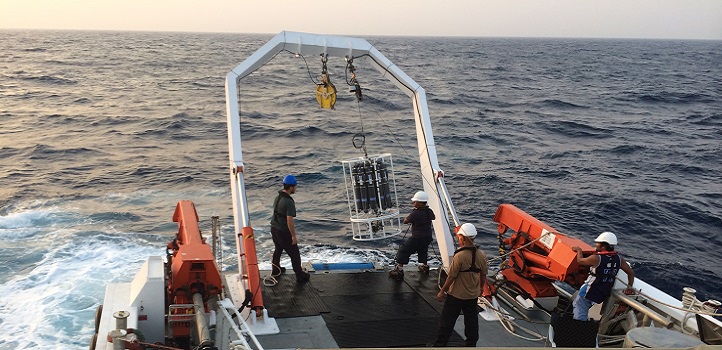
Marine Science
Studies of plankton communities in Red Sea waters provide insights into seasonal variations and dominant control mechanisms.
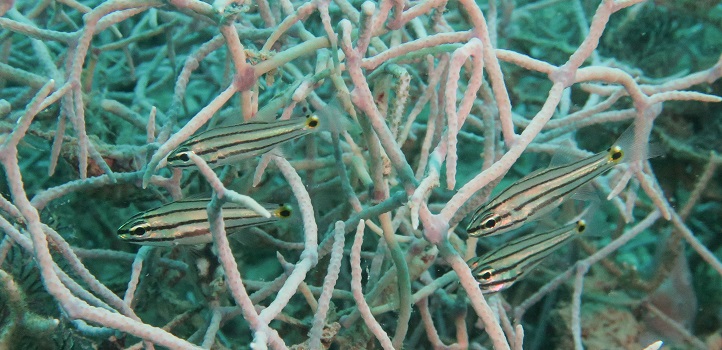
Marine Science
Reef fish species uniquely respond to climate change, with some more vulnerable than others.
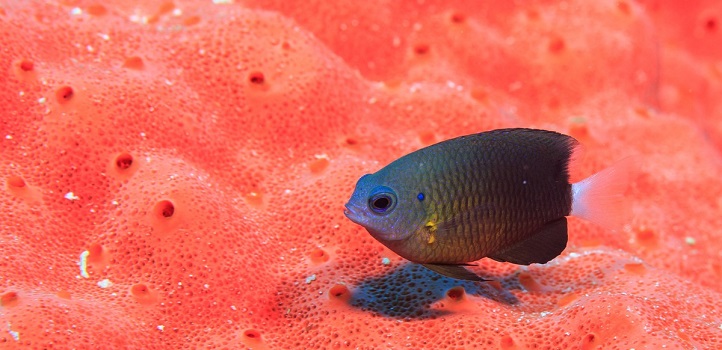
Marine Science
A framework that helps marine scientists select localized carbon dioxide levels for experiments aims to improve robustness in global warming studies.
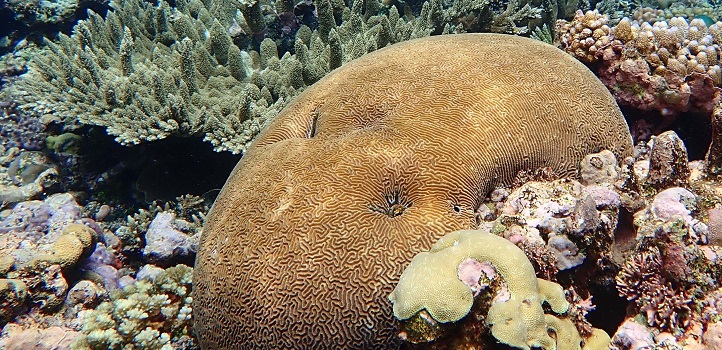
Marine Science
First evidence that animal DNA methylation patterns can be passed to the next generation.
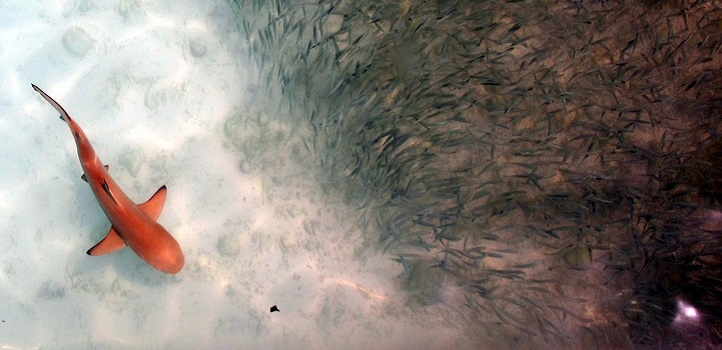
Marine Science
No evidence of infection found in the bacterial community around shark wounds.
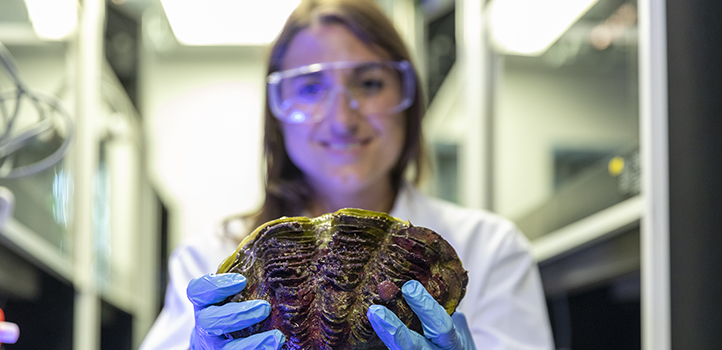
Marine Science
Microplastics in the water column are ingested by clams and become attached to their shells.
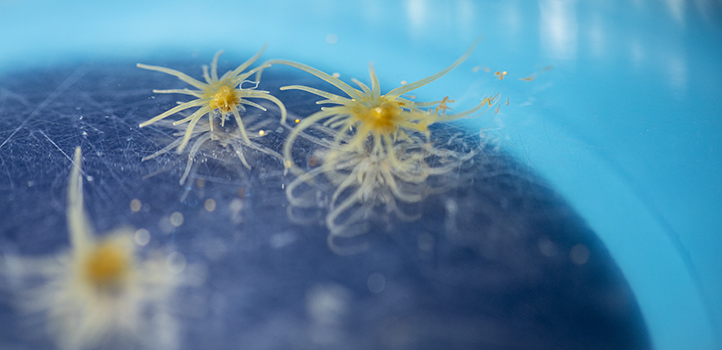
Marine Science
Corals use sugar from their symbiotic algal partners to control them by recycling nitrogen from their own ammonium waste.
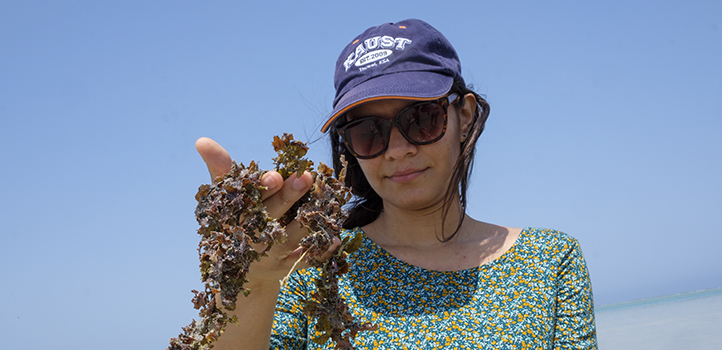
Marine Science
Macroalgae is shown to be a major global contributor to carbon sequestration.

Marine Science
Sediment libraries show marine ecosystems are accumulating oil pollution faster than ever.
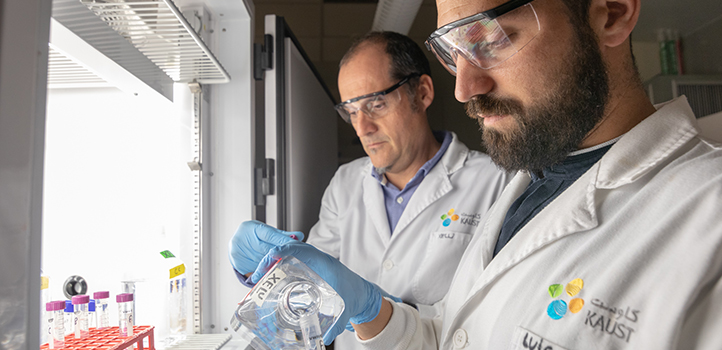
Marine Science
Predation, not resource availability, limits the abundance of coastal Red Sea bacteria.
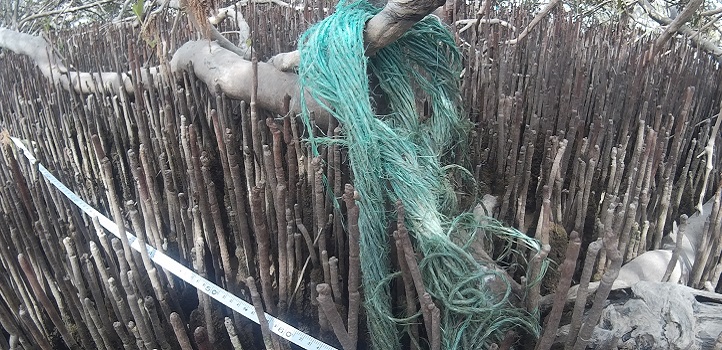
Marine Science
Marine plastic pollution accumulates in mangrove forests and is a danger to sea life.
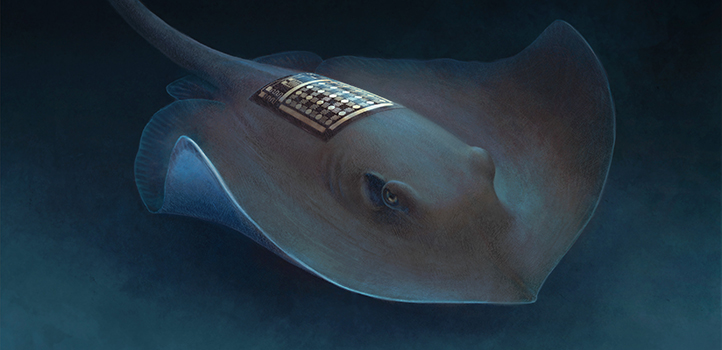
Electrical Engineering
A pioneering tagging system that monitors the movement and local environment of sea animals reaches deeper depths and higher sensitivities.
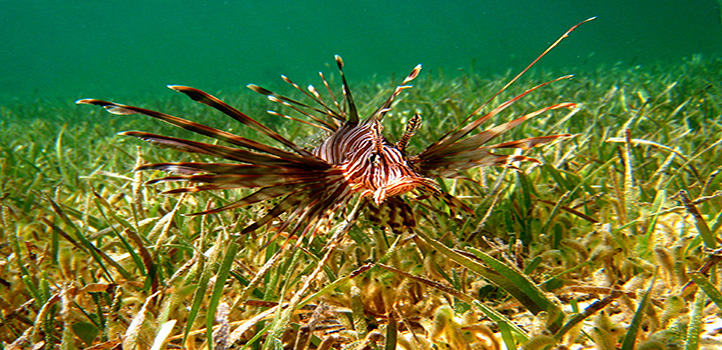
Marine Science
Researchers disentangle the effects of introduced species on the marine environment.
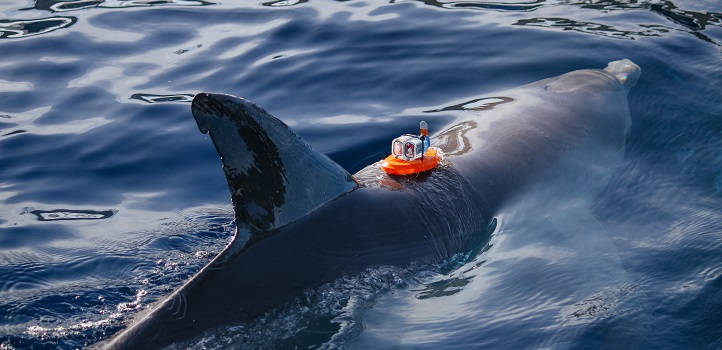
Marine Science
Laser-induced graphene formation creates tailor-made sensors for monitoring ocean creatures and ecosystems.
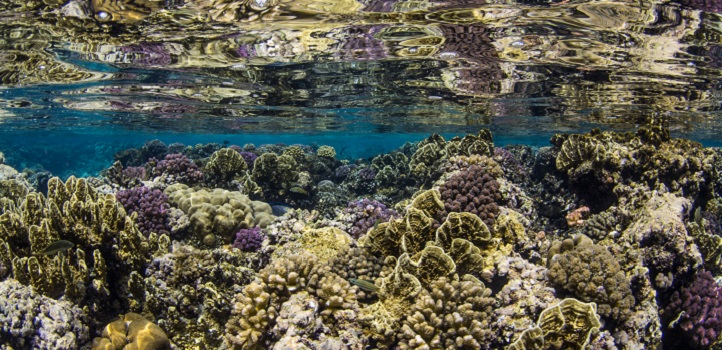
Marine Science
Determining the growth dynamics of Red Sea coral reefs has enabled researchers to establish a baseline to assess the effects of environmental change.
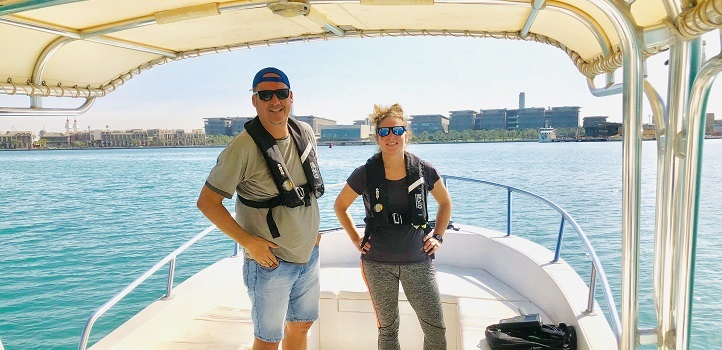
Marine Science
Investigating plankton communities' reaction to rising water temperatures may improve modeling of marine ecosystem responses to global warming.

Marine Science
Composition in cryptic fauna assemblages changes across a shelf gradient, a recent study of the Red Sea shows.
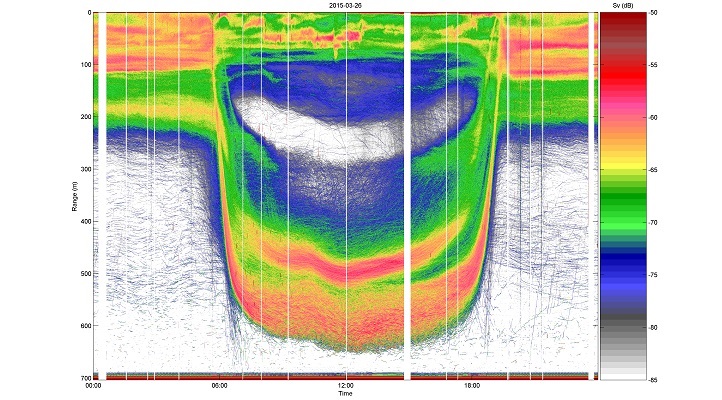
Marine Science
A carbon source stemming from daily fish migrations is implicated in the global carbon cycle.

Marine Science
While drones scan beaches to assess plastic litter, microplastics are found in the digestive tracts of one in every six Red Sea fish.
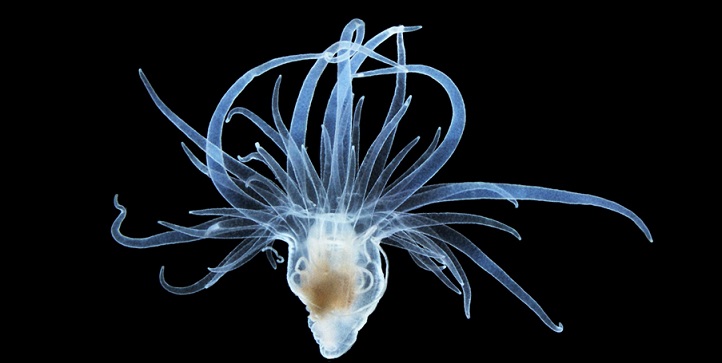
Marine Science
Epigenetic mechanisms adjust gene expression in anemone symbiosis.
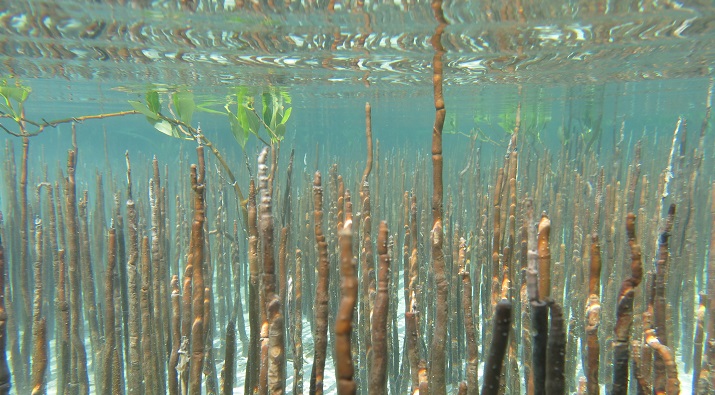
Marine Science
Maintaining a balance between rising sea levels and soil accumulation will rely on careful management of coastal regions.
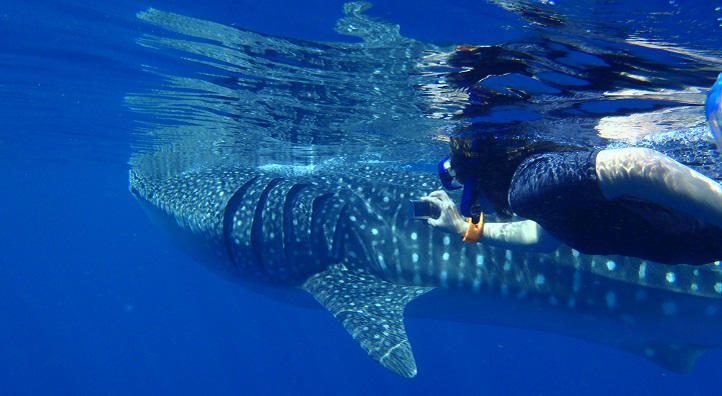
Marine Science
Investigations of prey patterns fail to explain why whale sharks aggregate off the coast of Saudi Arabia.
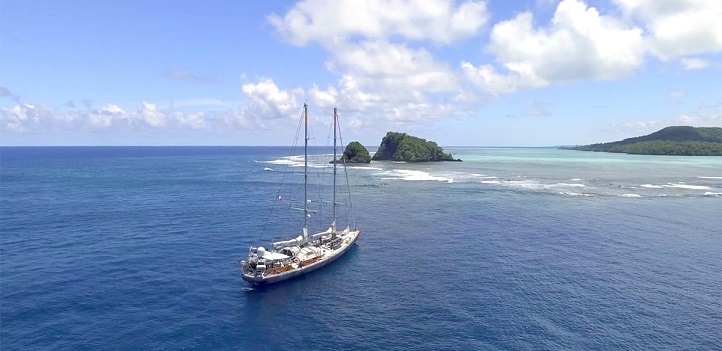
Marine Science
Corals, even in the most far-flung locations, are being affected by climate change but fare better in marine protected areas.
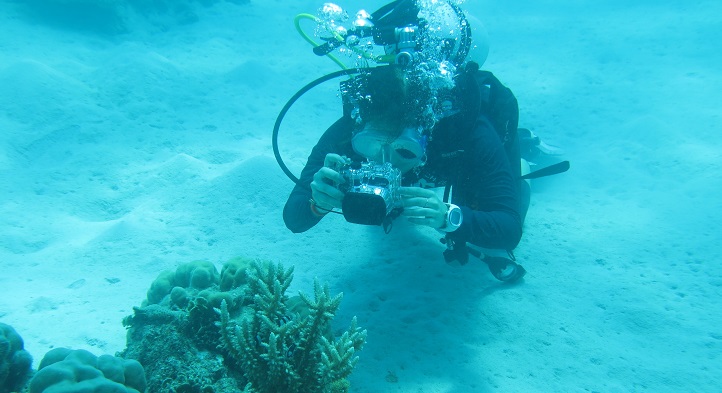
Marine Science
Research reveals the genetic response to heat stress and highlights symbiotic algae’s role.
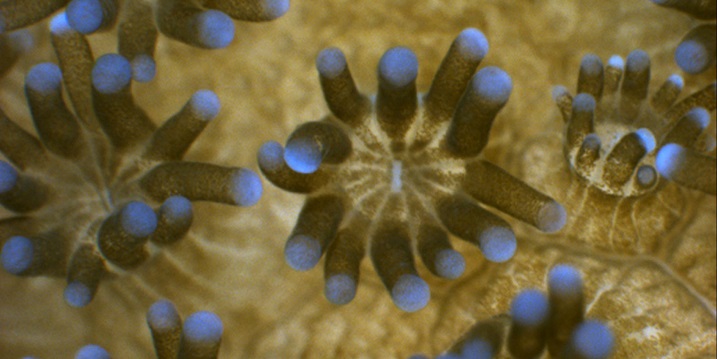
Marine Science
A molecular process that signals distress could also help corals adapt to climate change.
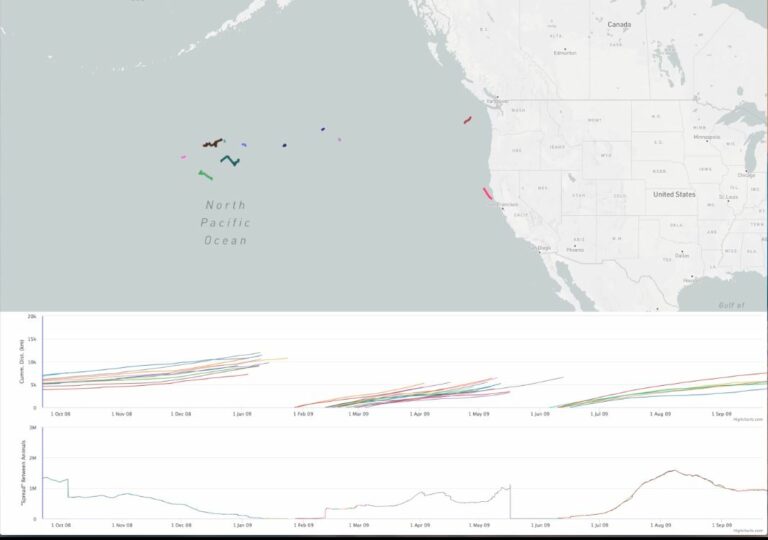
Marine Science
Adding sound to elephant seal migration data reveals high levels of coordination when swimming long distances.
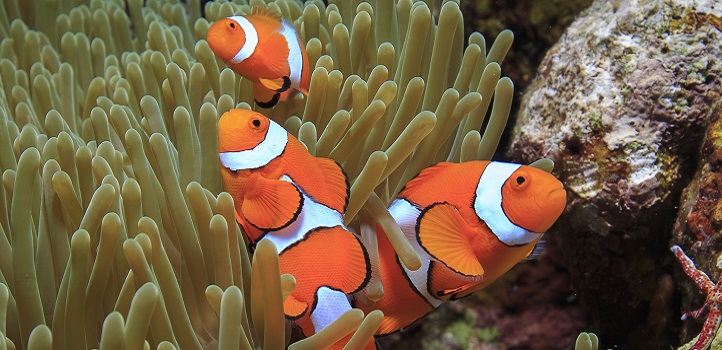
Marine Science
Nemo’s genome has been deciphered and made publicly available, helping researchers further investigate fish ecology and evolution.
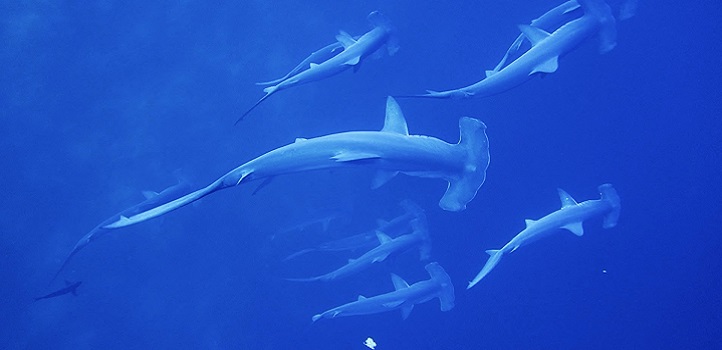
Marine Science
Big data shows that large marine vertebrates move differently, but consistently, through coastal and ocean waters.
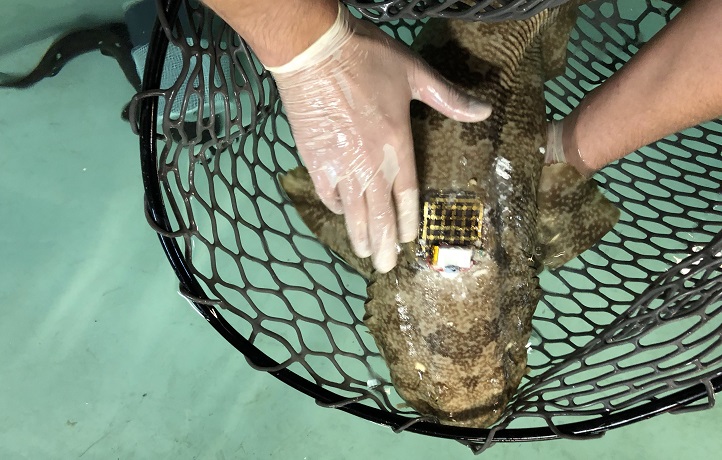
Marine Science
An electronic tag that stretches and flexes while it records location and environmental data can monitor marine animals in their natural habitat.
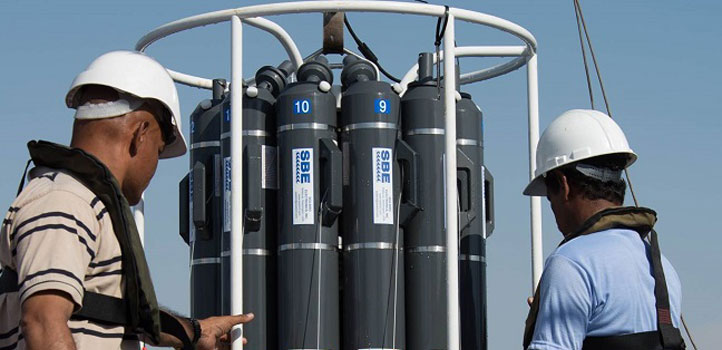
Marine Science
Turbulence and nutrient availability drive changes in Red Sea microbes.
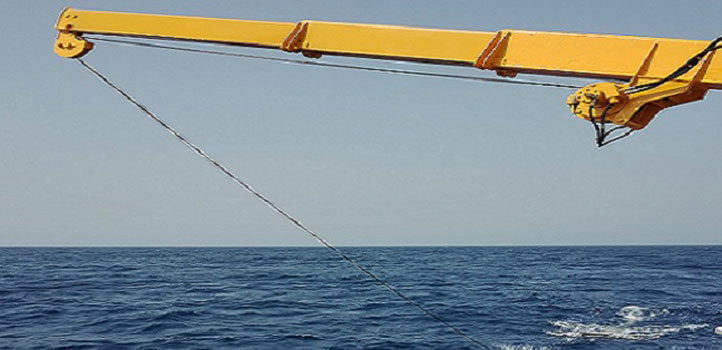
Marine Science
The Red Sea has relatively low amounts of floating plastic debris in its surface waters due to fewer sources or faster removal.
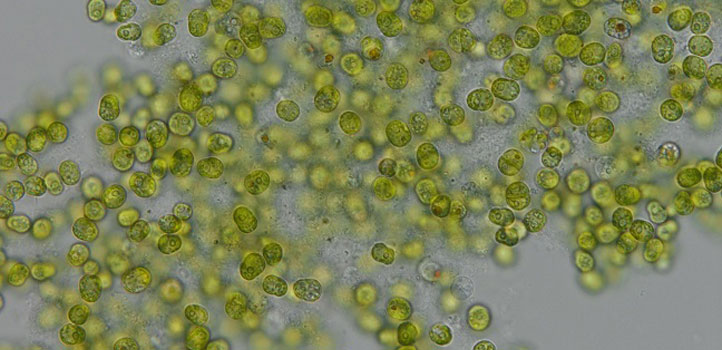
Marine Science
Jumping genes could make an alga, and its coral host, more tolerant to warming sea temperatures.
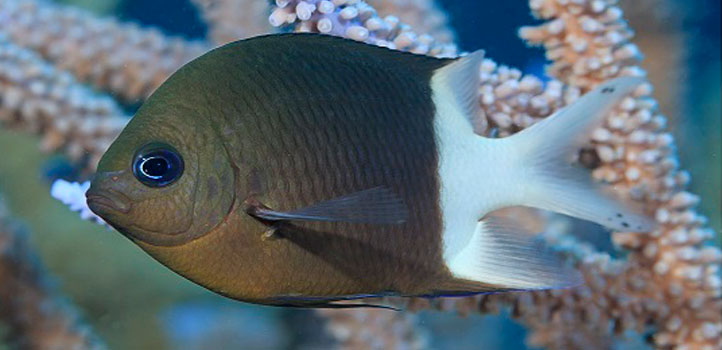
Marine Science
Some species of fish have special adaptive mechanisms that could improve their chances of surviving the greenhouse effect.
Marine Science
A new soil classification system, and tools to implement it, helps understanding of the properties of the ground underpinning geo-engineering projects.
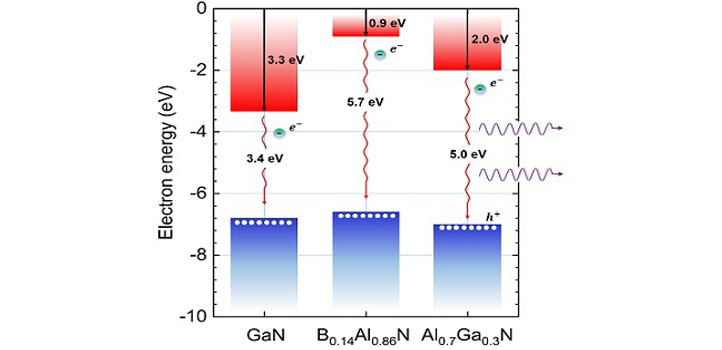
Marine Science
Efficiency gains come from tuning the properties of semiconducting materials by combining layers of different composition.
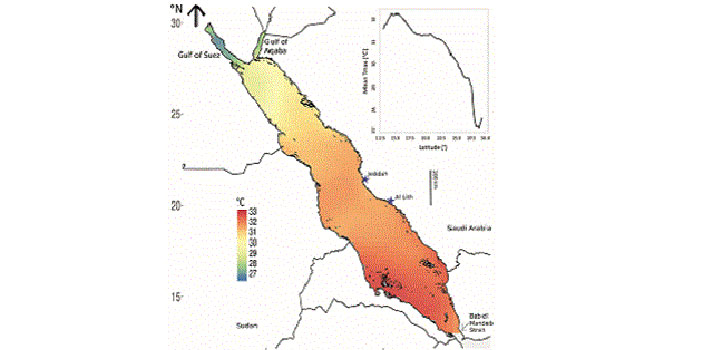
Marine Science
The world’s warmest sea is heating up faster than the global average, which could challenge the ability of the Red Sea’s organisms to cope.

Marine Science
A combination of morphological and molecular approaches gives researchers a first glimpse of Red Sea larval fish communities.
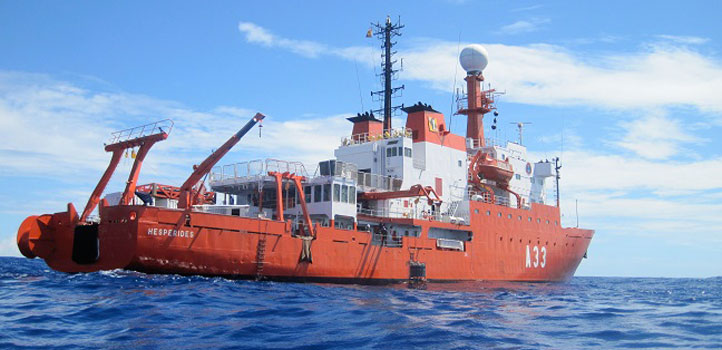
Marine Science
Microbes are dispersed widely over the oceans with islands acting as stepping-stones to help transport of land-based organisms.
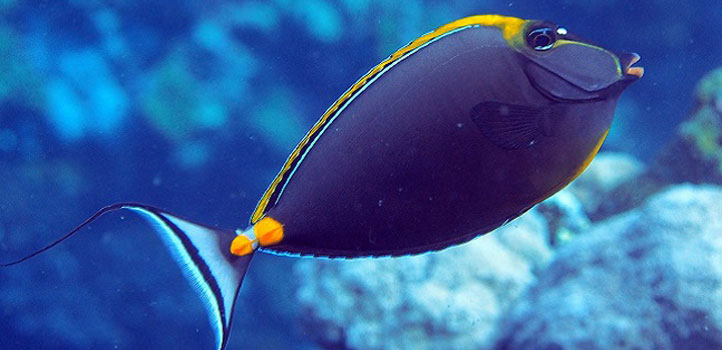
Marine Science
Symbiotic giant bacteria enable Red Sea surgeonfish to specialize their diets.
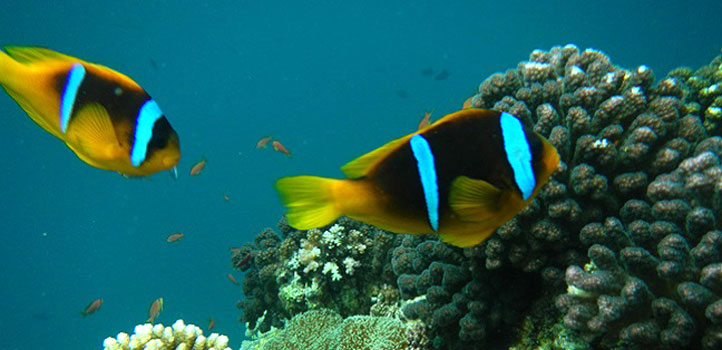
Marine Science
Satellite imagery shows how currents shape the Red Sea ecosystem.
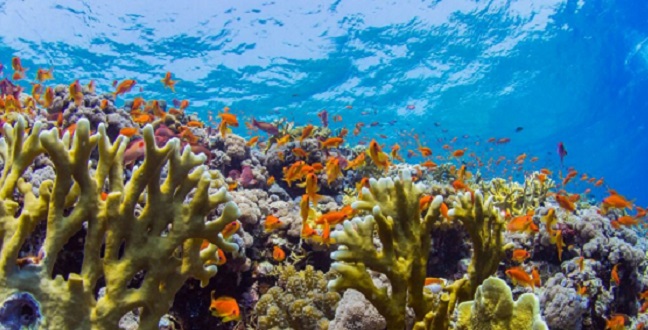
Marine Science
Coral ecosystems may be able to adapt rapidly to climate change through natural plastic responses.
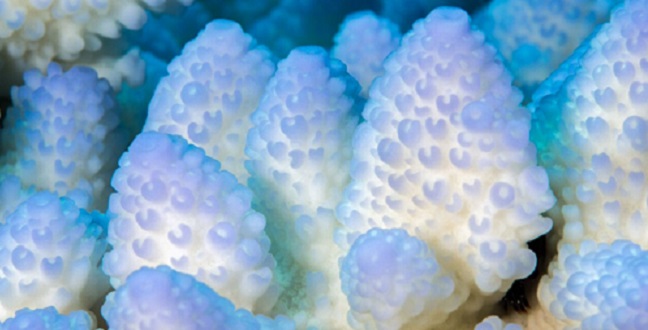
Marine Science
When faced with high salinity, the tiny plant cells within coral tissue alter their metabolites to better cope with stress.
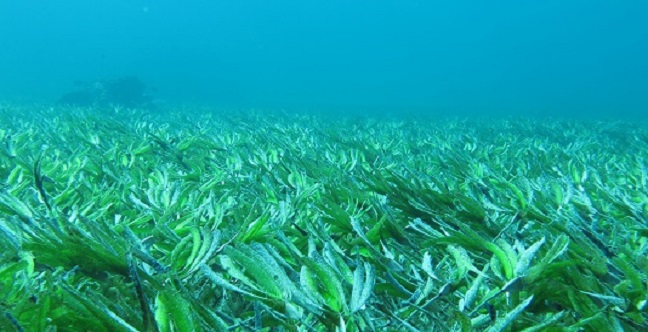
Marine Science
Mangroves, seagrass meadows, seaweeds and saltmarshes, the forests of the sea, perform a vital and often overlooked role in storing carbon and mitigating the effects of climate change.
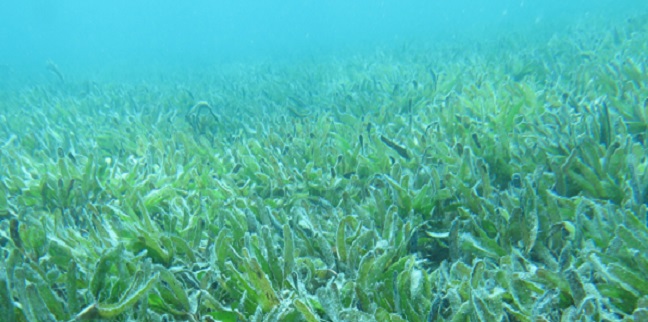
Marine Science
Protection zones for coasts and oceans are an effective way to help marine and human communities to adapt to climate change.
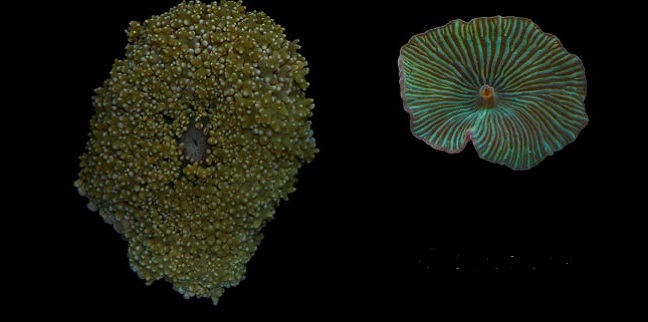
Marine Science
The genome sequences of two "false" corals offer a window into the evolution of calcification, which may help their reef-building cousins.
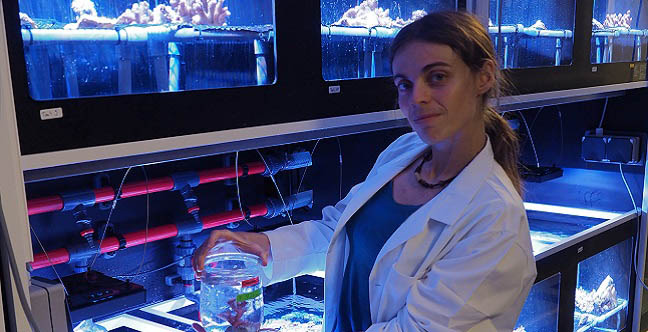
Marine Science
A unique investigation highlights how excess nitrogen can trigger coral bleaching in the absence of heat stress.